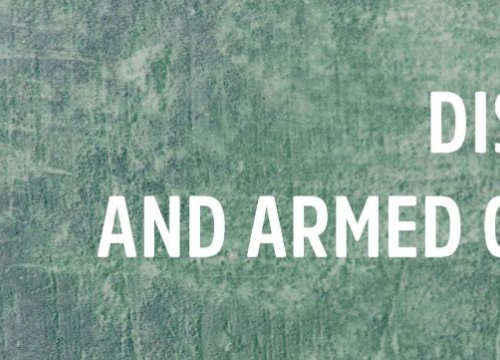First to be Forgotten – Persons with Disabilities and Armed Conflict
Event


Geneva Academy
To launch our new publication on persons with disabilities and armed conflict, we host a joint-panel with the International Committee of the Red Cross (ICRC) to explore the impact of armed conflict on persons with disabilities, as well as states, armed non-state actors and humanitarian organisations’ obligations towards them.
Armed conflict has a particularly devastating and disproportionate impact on persons with disabilities, who based on their impairment, are denied the rights and protections they are entitled to under both international human rights law (IHRL) and international humanitarian law (IHL). Persons with disabilities are the subject of targeted killings and sexual and gender-based violence, and more likely to be killed or sustain serious injury as a result of inaccessible protection mechanisms and evacuation procedures. Inaccessible humanitarian assistance (including food, water, medical care, shelters and displacement camps) has a catastrophic impact on persons with disabilities. In the aftermath of conflict, persons with disabilities are not granted equal participation and full involvement in peace processes.
Despite the severe consequences that armed conflict has on persons with disabilities, they remain the forgotten victims of armed conflict. ‘Disability’ is still widely considered a niche issue, particularly in the conflict setting and very little research or literature exists on the topic.
Our new publication ‘Disability and Armed Conflict’, the output of a three-year research project, assesses the relationship between the United Nations Convention on the Rights of Persons with Disabilities and IHL, and makes recommendations regarding a range of conflict-specific issues including the proportionality assessment, effective warning systems, evacuation procedures and the treatment of prisoners of war and internees from a disability inclusive perspective. Copies of the publication will be available at this launch.
Alice Priddy, Senior Researcher at Geneva Academy will present the key findings and recommendations from our report. Her presentation will be followed by a panel discussion with key experts on IHL, the CRPD and humanitarian response.
In conjunction with this event, a photography exhibition by Giles Duley on persons with disabilities and armed conflict will take place on Quai Wilson from 30 April 30 to 30 May 2019.
Welcome and Introduction
- Marco Sassòli, Director, Geneva Academy and Professor of International Law, University of Geneva
- Stephen Wilkinson, Global International Humanitarian Law Advisor, Diakonia
Moderation
- Mina Mojtahedi, Disability Inclusion Adviser, ICRC
Panelists
- Ezequiel Heffes, Thematic Legal Advisor, Geneva Call
- Alice Priddy, Senior Researcher, Geneva Academy
- Hugo Slim, Head of Policy, ICRC
Registration
You need to register to attend this event via an online form on the ICRC website.








